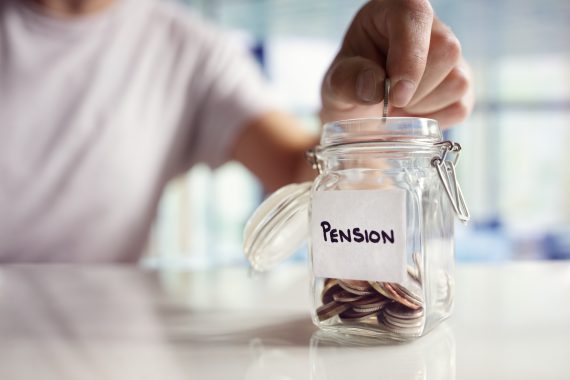GP practices face annual pension contribution rise of around £50,000

GP partners may have to pay around £7,000 more per doctor each year for employer contributions to the NHS pension scheme, it has been revealed.
The Department of Health and Social Care is proposing introducing a new contribution rate of 20.6% – up from the current 14.38% – from next April as part of a consultation on proposals to change NHS pension scheme regulations.
The consultation, published yesterday, says it is proposing to introduce a new contribution rate of 20.6% for employers from 1 April 2019, although the document says the Government has committed to providing additional funding to meet costs arising from the proposed pension changes.
It also wants to:
- renew current member contribution rates so that the same rates continue to apply beyond 31 March 2019;
- provide civil partners and same sex spouses with the same survivor pension rights as widows;
- extend the current forfeiture of pension benefits rules.
Andrew Pow, director of the Association of Independent Specialist Medical Accountants, said: ‘The current rate for employer contributions is 14.38%. An increase to 20.6% will represent an additional £4,665 for GP partners with pensionable earnings of £75,000, £6,220 for those earning £100,000 and an additional £7,775 for GPs with pensionable earnings of £125,000, as well as increased costs in employing staff.
‘This will have a severe impact on practice finances unless additional funding is available. To make it even worse, individual higher earning GPs in the 2015 pension scheme could also see an increase in their annual allowance tax charge.’
For an average GP practice with 8,500 patients, it could mean a rise of around £50,000 per year to cover the rate rise for all doctors and staff there.
Speaking of the proposal to increase the contribution rate to 20.6%, Mr Pow told Pulse: ‘I don’t think this proposal will be received very well by the profession. The impact is that GP practices have to pay the employer’s pension contribution for all their staff so, firstly, that will push the cost up of employing staff significantly.
‘Secondly, they then personally, if they are GP partners, have to pay the employer’s pension contributions on the profits that they earn so their personal pension contribution that they are paying is going to go up.
‘Unless the Government match it by funding at the top end, then it’s going to cause problems. We are talking about a huge sum of money – about 6% contributions over the whole NHS including hospitals.
‘There has to be some funding adjustment that will have to go in to counterbalance this.’
When Prime Minister Theresa May announced in June that the NHS would receive around £20.5bn extra investment by 2023/24, he said, there was an acknowledgement that there could be a pension issue and therefore a need to adjust for that with an extra £1.25bn top-up funding for pensions, but Mr Pow said that was unlikely to cover the full impact of this increased contribution rate rise.
‘There is a risk that that top-up will flow though hospitals and also through the GP side, but there will not be sufficient funding to cover all this unless the government does something more radical.’
A BMA spokesperson said: ‘The BMA will be formally responding to this consultation in detail on behalf of all members affected. With regard to general practice, any rise in employer contributions must be fully funded to ensure GP partners are not unfairly impacted.’
The consultation closes on 28 January 2019.
Pulse October survey
Take our July 2025 survey to potentially win £1.000 worth of tokens












